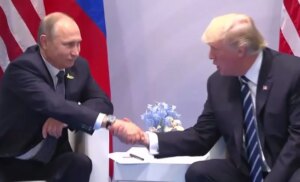The Complicated Landscape of War: Voices from Croatia and Beyond
As the global discourse surrounding the war in Ukraine continues to evolve, insights from various corners of the world enrich our understanding. Recently, a visitor to Croatia shared observations that highlight widespread skepticism regarding mainstream narratives pushed by figures like Senator Lindsey Graham.
Dissecting Political Rhetoric
Senator Graham’s recent visit to Ukraine saw him dismiss negotiations for peace as a “joke,” reaffirming his staunch support for continued hostilities. In stark contrast, many voices in Europe, particularly those in Croatia, express disbelief at claims that Ukraine is winning the war or that conflict will escalate significantly. This skepticism raises critical questions about the narratives being pushed by mainstream media (MSM).
Is it possible that the real story is more nuanced? Citizens from various European nations share the belief that the war will not expand as some political leaders suggest. They view Graham’s rhetoric as not just misguided, but dangerous. It leads to a broader contemplation: What are the implications of such political maneuvering on international peace?
The Proxy War Debate
A profound sentiment emerging from the conversation is that the conflict has morphed into a “proxy war,” a term notably articulated by Hungarian Prime Minister Viktor Orbán. Orbán’s characterization frames the war as a battlefield not solely between Russia and Ukraine, but as a larger confrontation involving NATO and the U.S. This perspective, however controversial, resonates with many who perceive NATO’s involvement as escalating rather than de-escalating tensions.
Such views are echoed across various European nations, where leaders warn against NATO’s military aid to Ukraine, cautioning that it exacerbates volatility in the region. The divergence in perception between political elites and ordinary citizens serves to highlight the disconnect that often exists in geopolitics.
The Role of Media and Misinformation
While mainstream media tends to portray Russia as the aggressor, those in the European media landscape argue that there’s a deliberate effort to downplay the broader implications of the conflict. The narrative often reduces complex geopolitical dynamics into digestible soundbites, neglecting the deeper realities at play.
For instance, former Russian President Dmitry Medvedev’s recent warning about the potential for World War III serves as a stark reminder of the stakes involved. His characterizations of U.S. President Trump’s aggressive posturing prompt us to ask whether inflammatory political rhetoric is beneficial or detrimental to diplomatic efforts.
A Call for Pragmatism
The situation begs for a pragmatic approach to understanding the layers of influence guiding the war. An emphasis on dialogue over rhetoric could pave the way for a more stable future. Advocates argue for the necessity of engagement, rather than retreating into an ideological bunker that favors one side over another.
For example, calls from U.S. Congress members advocating for a reduction in involvement, such as Rep. Marjorie Taylor Greene, reflect a growing sentiment within the American populace that resonates with Europeans: there must be a shift from war to peace for the sake of international prosperity.
Conclusion: A Togetherness in Dissent
As we delve deeper into these conversations, the story that emerges from Croatia and beyond invites readers to question the narratives presented by mainstream channels. At Extreme Investor Network, we thrive on multifaceted viewpoints that challenge conventional wisdom. Understanding the principles of negotiation, peace, and the long-term consequences of war is crucial not only for Europe but for global stability.
It’s imperative for citizens and leaders alike to recognize that behind the political facade lies a complex web of consequences that affect millions. As we navigate these turbulent waters, let us champion dialogues rooted in truth, seek common ground, and work towards a future where peace is prioritized over conflict.
This is a clarion call for engaged citizenship and global cooperation amidst challenging geopolitical realities.

